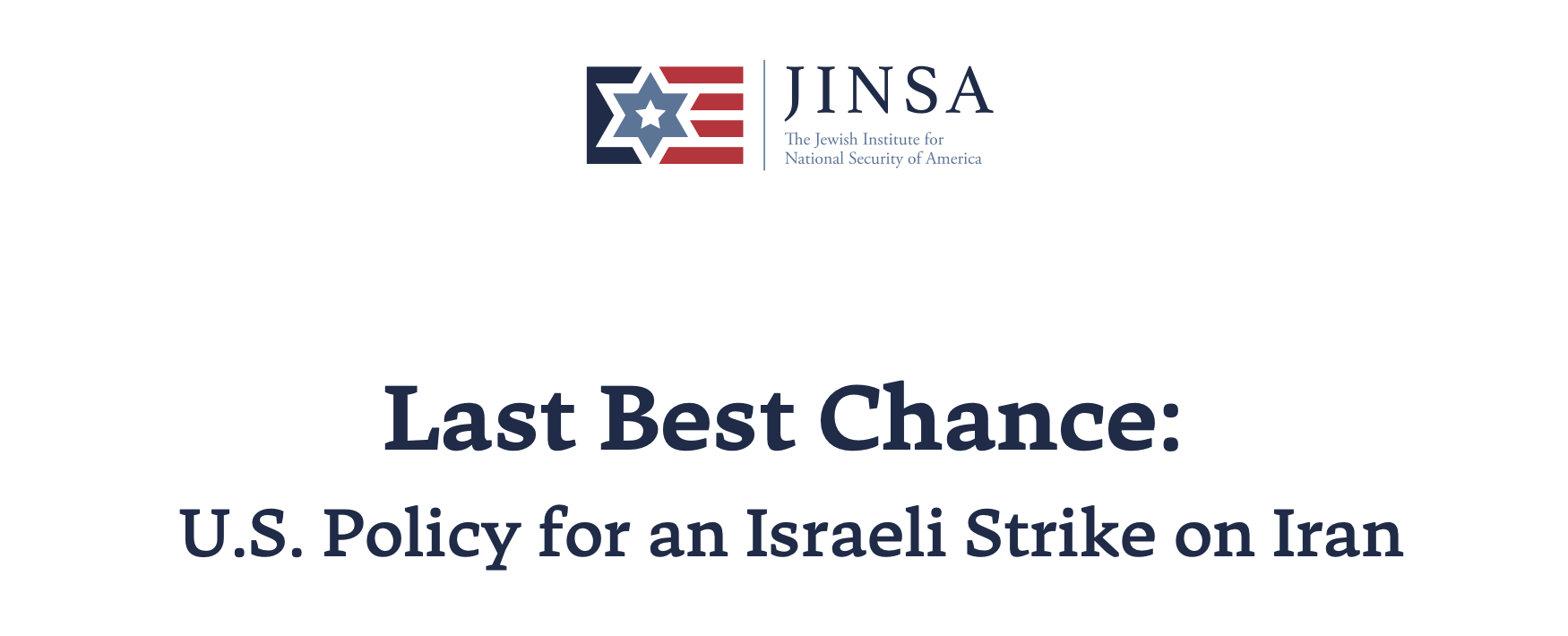Israel to Lead Iran Strike: JINSA Says It’s Time
Executive Summary
President Donald Trump stated that Israel would “be the leader” of any military strike on Iran if diplomacy fails to halt Tehran’s nuclear ambitions. This bold declaration came ahead of scheduled U.S.-Iran talks in Oman, reflecting both rising tension and coordination with Israeli leadership. Prime Minister Netanyahu expressed support for diplomacy but emphasized that Iran’s nuclear capabilities must be completely dismantled — by force, if necessary. The Jewish Institute for National Security of America (JINSA) reinforced this view, arguing that time is running out and Israel must prepare to act, with or without direct U.S. involvement.
Analysis
Trump’s approach to Iran is once again entering a high-stakes phase, combining diplomatic overtures with increasingly aggressive military posturing. While he insists he prefers a peaceful solution, the administration’s two-month window for negotiations, backed by the threat of force, creates a now-or-never dynamic. Netanyahu, who views Iran’s nuclear ambitions as an existential threat, is signaling a willingness to strike — not just rhetorically, but through military coordination with the U.S., including joint air drills and the movement of stealth bombers and missile defense systems.
JINSA’s newly released report, “Last Best Chance,” argues that the U.S. and Israel must prepare for a scenario in which diplomacy fails. It outlines a military strategy for targeting Iran’s nuclear infrastructure and emphasizes that Israel should be prepared to act independently if needed. The report urges the U.S. to supply Israel with the necessary weapons, including bunker-busting bombs and advanced refueling aircraft, and to greenlight strategic cooperation, even if the U.S. remains formally on the sidelines.
Meanwhile, Iran’s Supreme Leader has placed the military on high alert, and Tehran has resumed transferring long-range missiles to Iraqi proxies — a provocative move ahead of talks. Reports suggest the missiles are capable of reaching Europe, contradicting recent claims that Iraqi militias were prepared to disarm. This build-up, paired with Iran’s increased uranium enrichment, underlines fears that a regional war is not only possible but perhaps imminent.
Netanyahu has also revived calls for a “Libyan model” disarmament, under which Iran would voluntarily give up its entire nuclear infrastructure in exchange for sanctions relief. However, with Iran continuing to deny any interest in nuclear weapons while simultaneously escalating its military capabilities, that outcome appears unlikely.
JINSA’s position is clear: Israel may have no choice but to act alone if Trump’s negotiations fail. With Iran nearing weapons-grade enrichment, and the U.S. wary of entanglement ahead of a presidential visit to Saudi Arabia, the burden may fall on Israel to uphold red lines set long ago. The current moment, JINSA argues, could be the “last best chance” to stop Iran’s nuclear program before it crosses the threshold.
